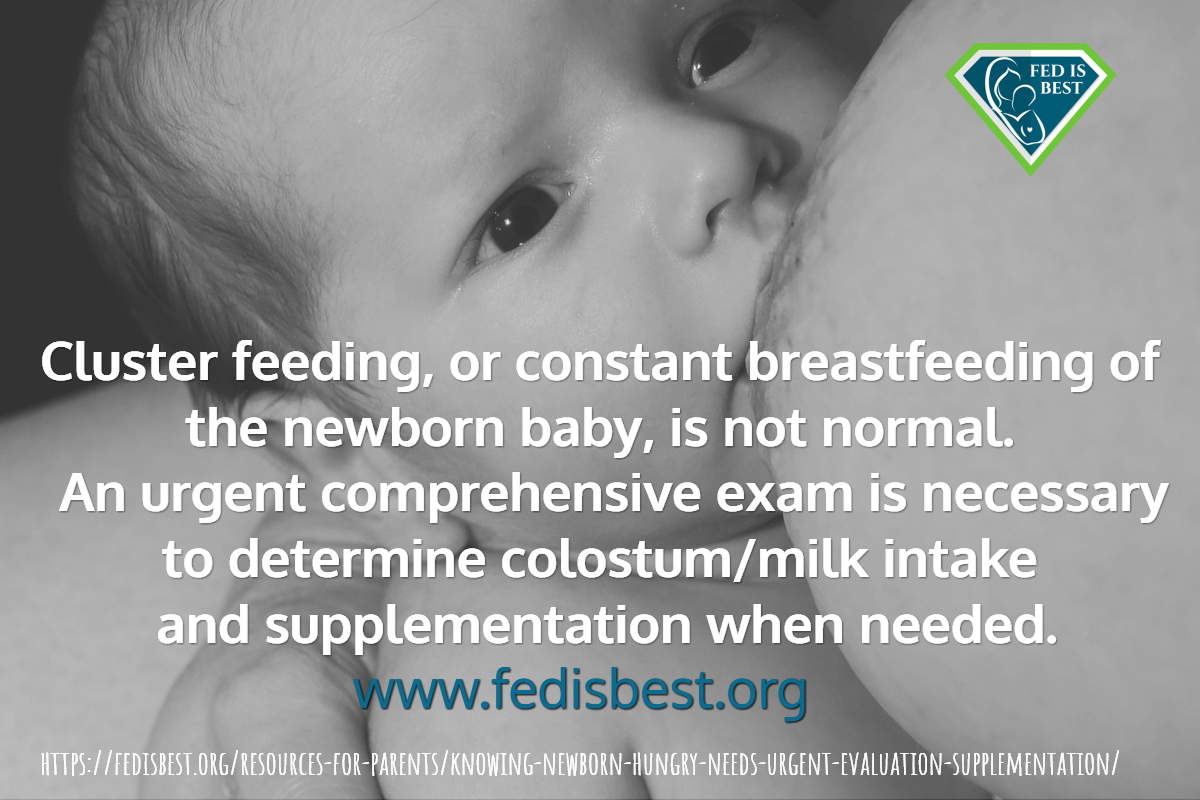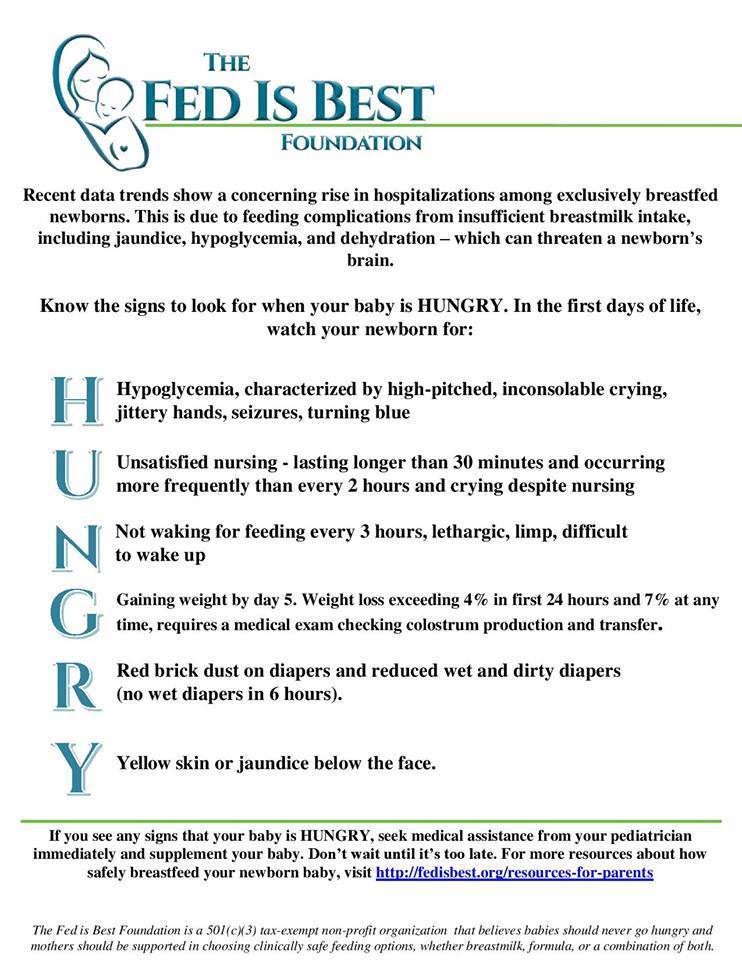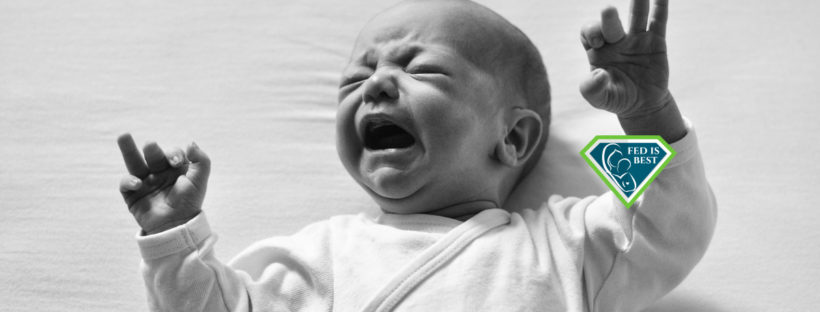I wish I had done more research about hospital exclusive breastfeeding policies before my son was born. I’m a registered nurse with a Bachelor of Science in Nursing, but my maternity and pediatric experience was limited to nursing school. I was always on the fence about breastfeeding—I said that it was my goal but that we would see, so I hadn’t bought in to the narrative of “Breast is Best”. Still, I expected the medical professionals at the hospital where my son was born to tell me if they thought my baby was starving while attempting to exclusively breastfeed.
I delivered at the University of North Carolina Hospital, a top medical center. I felt reassured that I was in great hands. They were called “baby friendly” after all. I didn’t look into what that meant, and I thought I was well prepared. I was induced after being diagnosed with preeclampsia, but, thankfully, it was caught very early. I was two days shy of forty weeks. I had a long labor, followed by a C-section due to my son’s position. I’m also thirty-five years old, so by all accounts, I was high risk. It also meant I was at risk for late or low breast milk supply.
First, my husband and I were laughed at when we said we planned to use the nursery. Thank God for my husband—he did the baby care and brought our son to me while I was bedridden so that I could breastfeed. I was told the latch was great. I felt confident things were going well. But my son was inconsolable by the time he was forty-eight hours old.
My baby nursed a lot. I was told everything was normal and he was “cluster feeding”. Later, as my training came back to me, I never remembered cluster feeding being a thing. During my training, babies were supplemented when mothers didn’t have enough colostrum babies were supplemented and were taken to the nursery if a parent requested. I went to Duke University, and I rotated through WakeMed. These are excellent hospital systems.
I was concerned about my baby’s very dry lips, and I was told not to worry. I asked about the few wet diapers that my son produced. Dismissed. I trusted that the medical professionals had my and my baby’s best interests at heart. I asked if maybe my milk hadn’t come in, and I was told all is well. We went home on the evening of the third day after birth, and my baby was looking jaundiced. He cried a lot, but nursing helped soothe him from crying–sometimes.

We saw the pediatrician the next day, and I found out my son had lost twelve percent of his weight since birth. We did a weighted feed in the doctor’s office, and his weight before and after nursing were exactly the same. My pediatrician, my husband, and I had a conversation about giving the baby formula. My husband and I had already decided we were going to supplement with formula before we saw the pediatrician, and our son’s weight loss confirmed that we were right to do so. We did not hesitate, and he had his first bottle minutes after we got home. He sucked it down, and he was finally calm and content for the first time in days. I tried to pump and barely got anything. My milk eventually came in, but we continue to supplement. His weight rebounded, and he gained well, but I was beside myself knowing that my baby had starved. It shouldn’t have come to that.
I am upset that the nurses (most of whom were fairly new) don’t know the difference between true cluster feeding and starvation. I am livid that no one even suggested formula.
I was angry that I didn’t put the symptoms together due to sheer exhaustion, and I placed my trust in the medical professionals without questioning their reasoning.. I am livid that no one even suggested formula, and I am heartbroken that I didn’t think to ask. I just kept saying, “I don’t think my milk is in.” I can’t believe it is up to the mother to specifically request formula. I was post-op and exhausted—I could not string a coherent thought together. And to think a bottle would have made such a big difference. It took me a little while before I was able to stop crying at the thought that my baby had suffered. I am so very thankful that we didn’t allow this to continue, and that he is thriving now at two months old.
The pediatric nurse practitioner instructed me at my discharge from the hospital not to pump because it would interfere with breastfeeding. It occurred to me later that her answer betrayed the “Breast is Best” cause. If breast milk is truly the best nutrition for a baby, it shouldn’t matter what container it comes in, whether it be from my breast or via a bottle. This makes me think the breastfeeding establishment is more concerned with direct, exclusive breastfeeding and the public breastfeeding crusade, than they are with providing nutrition for a baby.
If or when I have another baby, I will be well prepared to advocate for my baby and myself, and I will not blindly trust the medical professionals—a sad realization for me because I am one. I will also bring formula to the hospital in my overnight bag. My babies will not go hungry.
Kathryn
HOW YOU CAN SUPPORT FED IS BEST
There are many ways you can support the mission of the Fed is Best Foundation. Please consider contributing in the following ways:
- Join the Fed is Best Volunteer group to help us reach Obstetric Health Providers to advocate for counseling of new mothers on the importance of safe infant feeding.
- Make a donation to the Fed is Best Foundation. We are using funds from donations to cover the cost of our website, our social media ads, our printing and mailing costs to reach health providers and hospitals. We do not accept donations from breast- or formula-feeding companies and 100% of your donations go toward these operational costs. All the work of the Foundation is achieved via the pro bono and volunteer work of its supporters.
- Share the stories and the message of the Fed is Best Foundation through word-of-mouth, by posting on your social media page and by sending our resources to expectant moms that you know. Share the Fed is Best campaign letter with everyone you know.
- Write a letter to your health providers and hospitals about the Fed is Best Foundation. Write them about feeding complications your child may have experienced.
- Print out our letter to obstetric providers and mail them to your local obstetricians, midwives, family practitioners who provide obstetric care and hospitals.
- Write your local elected officials about what is happening to newborn babies in hospitals and ask for legal protection of newborn babies from underfeeding and of mother’s rights to honest informed consent on the risks of insufficient feeding of breastfed babies.
- Send us your stories. Share with us your successes, your struggles and every thing in between. Every story saves another child from experiencing the same and teaches another mom how to safely feed her baby. Every voice contributes to change.
- Send us messages of support. We work every single day to make infant feeding safe and supportive of every mother and child. Your messages of support keep us all going.
- Shop and Fed is Best Foundation will earn cash back! We hope to develop our online safe infant feeding classes with these funds.
- If you need support, we have a private support group– Join
Thank you so much from the Founders of the Fed is Best Foundation!

One thought on “The Medical Professionals At The University Of North Carolina Allowed My Baby To Starve”